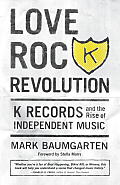
Firsts, by nature, are fleeting.
By the time a human being arrives at age 33, as I have, a good many have gone under the bridge. Long ago, I swam in my first ocean, summited my first mountain, set foot in my first foreign land. My first kiss — along with most other romantic milestones — has passed. I have, consequently, already suffered my first heartbreak, smoked my first smoke, drank my first drink. I danced awkwardly at my first rock concert. I cried unexpectedly at my first funeral.
These firsts are common, a natural part of most modern lives. Those are the things that make me human, but they don't make me me. There is another tier of firsts for people, specialized to their calling in life. Athletes have a first win. Carpenters, a first cabinet. Priests, a first mass.
Writers have their own collection of firsts.
Some of these firsts are not unique to writers, though writers are more likely to take note of them. Many people have received a first laugh from a story they have written. Mine was from Josh Abbott, in response to my spoof of Jack London's short story "To Build a Fire." Many people will receive a first compliment from a stranger about their writing. Mine came from a teacher's aid in my freshman theology course after he read a paper I wrote contemplating the voice of God, or lack thereof, in the canonical gospels.
Then there are the firsts that only someone attempting to make a living by telling stories goes through. There was my first real job as a writer (editor, actually, for Portland's Willamette Week), my first big mistake (in a news story, transposing a woman's last name from Garfield to Heathcliff), my first big success (a cover feature on Portland's early-'90s music scene).
There are two other writerly firsts, though, that I put above all others. One is a first book. Today, with the publication of Love Rock Revolution: K Records and the Rise of Independent Music, I have achieved that most monumental of achievements for a young writer. I am very proud. It is a very good day.
The other, less recognized accomplishment, one that is secretly more important than a first book, is the first byline. That first byline predates a book. It is the first step a writer takes towards contributing to the larger conversation. The attendant story — the content of which is secondary to the fact that it appears next to your name — is often only noticed by family and friends. It is also, generally, quite bad.
In recognition of my first book, I went back to look at my first byline. It was a letter to the editor of my hometown newspaper, The Tomah Monitor-Herald, written on August 26, 1997.
I am holding a copy of the original letter in my hand right now. It is yellowed and torn and, unfortunately, filled with typos. It was written in response to an editorial written by one of the paper's editors titled "Alien Radio Show Abducts Conservative's Credibility." I won't suffer you the details, but in short, I go to bat for the head of the National Rifle Association, Wayne La Pierre, as well as alien abductees everywhere.
I am not a member of the National Rifle Association. Far from it. And you'll find me ambivalently leaning against the fence when it comes to aliens. So why did I write this letter? I search my mind for a memory of the trigger that kicked me into action, the moment that I decided, unwittingly, to become a writer. The only answer I can come up with is this: It needed to be written.